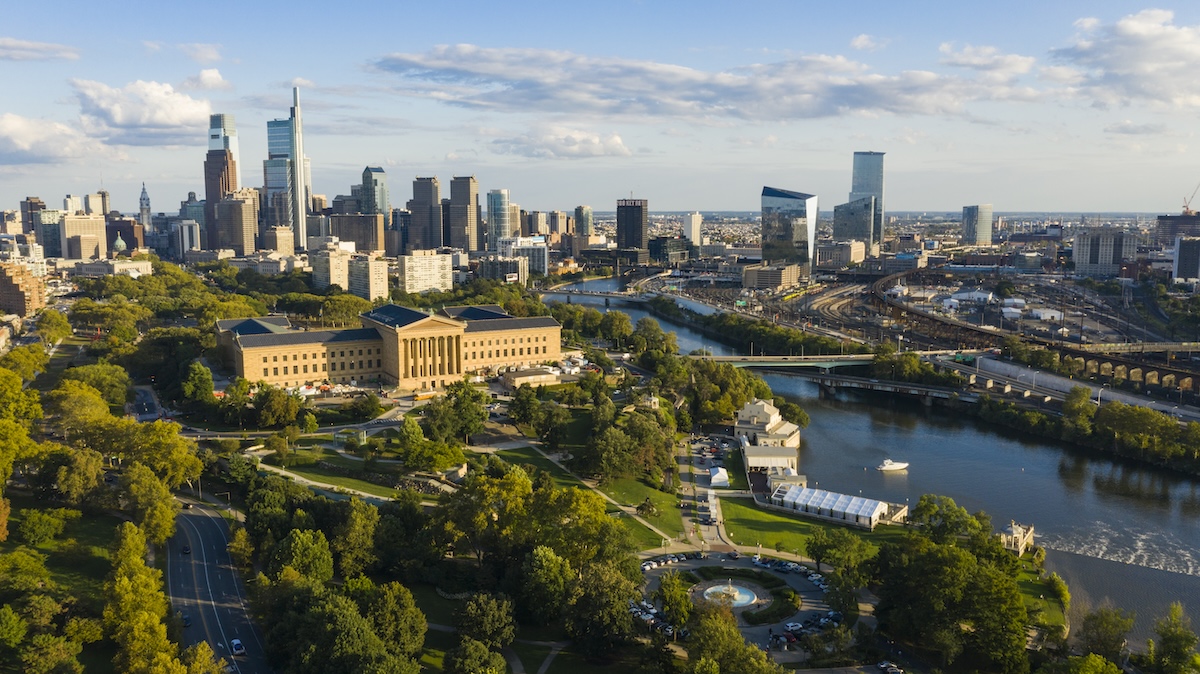Real estate investors and the capital markets they rely on to build and reimagine our cities have an understandable distaste for uncertainty, so in this context, good news would be signs of stability, directionality, and kernels of positive change that can be built upon.
Through that lens, I sifted through the deluge of headlines and think pieces — as well as the data and insights JLL Research can bring to bear locally and nationally — to identify four things I’m focused on for 2024 that could most directly affect the Philadelphia real estate market.
1. Changing of the guards
While certain glittery Philadelphians may wake up nursing a nasty 2-Street hangover on Jan. 2, incoming Mayor Cherelle Parker will be kicking off her first day as Philadelphia’s 100th (and first woman) mayor. With her comes a slew of new appointees across the city’s government, a partially reshuffled deck of City Council people, and some fresh faces at other major organizations focused on Philadelphia’s continued success.
Both Mayor Parker’s transition team members and permanent positions she’s announced to date suggest a strong focus on the business environment, but perhaps more importantly on the quality-of-life issues that can so readily affect it. This infusion of new people, leadership and ideas into the public discourse is welcome in a city where there is a growing desire for alternative strategies to address trends that affect the livability (and therefore the economic competitiveness) of Philadelphia.
The announcement and deployment of new initiatives and programs over the next year will hopefully restore confidence in the city’s ability to confront its challenges and produce a downstream effect of expanding the appetite among investors to take on challenged assets.
2. SEPTA projects and return-to-office
2023 was a mixed-bag year for our much-maligned and beleaguered but ever-intrepid transit system. The years-long effort to extend rail service into King of Prussia was put on ice even as other improvements moved forward (like the very sudden and very welcome rollout of direct contactless payment via phones, watches and credit cards across all subways, buses and trolleys).
Teed up for next year are the implementation of Bus Revolution, a cost-neutral project to maximize the frequency and utility of bus services across the city, and SEPTA Metro, a branding and wayfinding initiative that will simplify and clarify naming and directional signage across the system.
A lot is riding (pun intended) on SEPTA’s ability to make itself more convenient, more intuitive, more frequent, and generally more appealing. As it relates to the Center City office, Philadelphia already scores quite highly across US metros in getting workers back downtown, in no small part because of the density of the Greater Center City population.
Here’s hoping SEPTA’s pending list of near- and long-term upgrades can improve mobility and livability across the region and bolster the business case for Center City and key transit-accessible suburbs as enduring and successful places to locate businesses.
3. Residential and retail development boom strengthening neighborhoods and real estate fundamentals
While it’s likely that large-scale project starts may grind to a halt in the next calendar year, there are hundreds of projects already underway that will reshape the built environment in Center City, outlying neighborhoods, and key suburbs by delivering thousands of apartments and sought-after retail to previously underserved pockets. This is the other side of the coin from commercial office, but they cannot be disentangled from one another.
Diversifying and expanding high-quality housing options in and around Center City is a business attraction and retention strategy in and of itself. The more full-service, highly amenitized, bustling neighborhoods the city can offer to existing and prospective residents, the more easily it will hold onto its impressive talent pool, making relocation and expansion decisions for new businesses that much easier (and let’s not forget — companies have continued to identify Philadelphia as a strong place to move or expand their footprints even since 2020!).
Is short-term concern about the ability to fill so many units well-founded? Absolutely. But a cocktail of stubbornly high mortgage rates, historically low supply of single-family housing units, and younger generations of talent preferring to rent for reasons ranging from lifestyle preferences to student debt loads guarantee a strong pipeline of renters into the coming years. Any temporary glut of new inventory will get nibbled up if not gobbled.
4. Will life sciences improve before offices do?
This one isn’t a prediction or even a glass-half-full observation. It’s a genuine question that will be critical to stay on top of into 2024 and beyond.
Not long ago life sciences was routinely trumpeted as a too-strong-to-falter industry carrying Greater Philadelphia on its relentlessly upward trajectory. 2023 took the wind out of biotech’s sails across the country and around the world, but as we look ahead to a year with potentially lower interest rates, we could see VC activity crank back up to provide critical private sector investment dollars to the many fledgling and established companies making critical discoveries in this market.
Encouragingly, Philadelphia is ready for the next wave of company growth having kicked off an impressive construction pipeline of research and biotech manufacturing facilities over the last several years. Even if the sector isn’t moving as quickly as folks might have expected or hoped for, the key ingredients for long-term success remain unchanged in Philadelphia.







